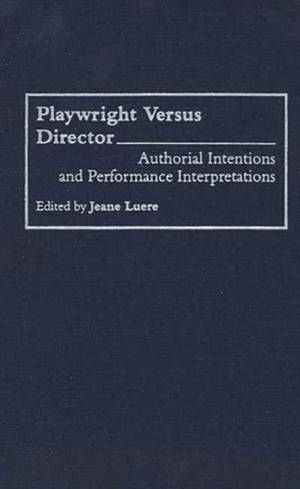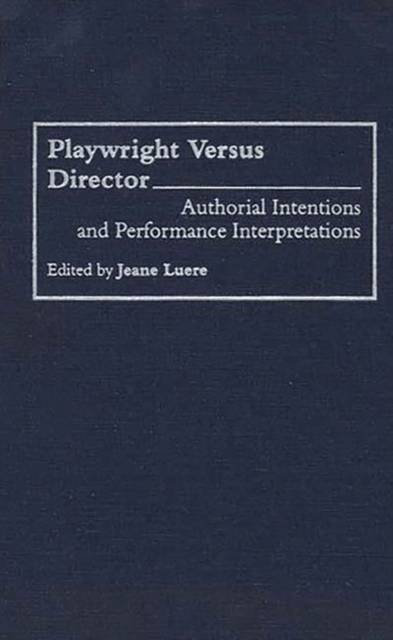
En raison d'une grêve chez bpost, votre commande pourrait être retardée. Vous avez besoin d’un livre rapidement ? Nos magasins vous accueillent à bras ouverts !
- Retrait gratuit dans votre magasin Club
- 7.000.000 titres dans notre catalogue
- Payer en toute sécurité
- Toujours un magasin près de chez vous
En raison de la grêve chez bpost, votre commande pourrait être retardée. Vous avez besoin d’un livre rapidement ? Nos magasins vous accueillent à bras ouverts !
- Retrait gratuit dans votre magasin Club
- 7.000.0000 titres dans notre catalogue
- Payer en toute sécurité
- Toujours un magasin près de chez vous
161,45 €
+ 322 points
Description
Giving equal space to the sanctity of script and the artistic freedom of directors, this book addresses the difficulties encountered by playwrights and directors as they bring a script to the stage. Inspired directors can help a writer of genius turn his play into exciting theatre, but playwrights find that giving directors leeway to interpret and modify text can result in directors' overriding authorial intentions. This book presents the best that has been written by literary theorists on the current definitions of text and attempts to depart from quick rule-of-thumb assessments of the problem.
Drawing from definitive articles in literary and theatre journals, part one gives the reader basic concepts and terminology. Interviews with playwrights and directors, showing the complexity of the issue, appear in part two, and part three includes case studies of playwrights and directors who faced production crises. Legal aspects of collaboration are considered in part four. The book concludes with a positive approach and possible solution to the problem.Spécifications
Parties prenantes
- Auteur(s) :
- Editeur:
Contenu
- Nombre de pages :
- 200
- Langue:
- Anglais
- Collection :
Caractéristiques
- EAN:
- 9780313286797
- Date de parution :
- 30-08-94
- Format:
- Livre relié
- Format numérique:
- Genaaid
- Dimensions :
- 156 mm x 234 mm
- Poids :
- 453 g

Les avis
Nous publions uniquement les avis qui respectent les conditions requises. Consultez nos conditions pour les avis.






